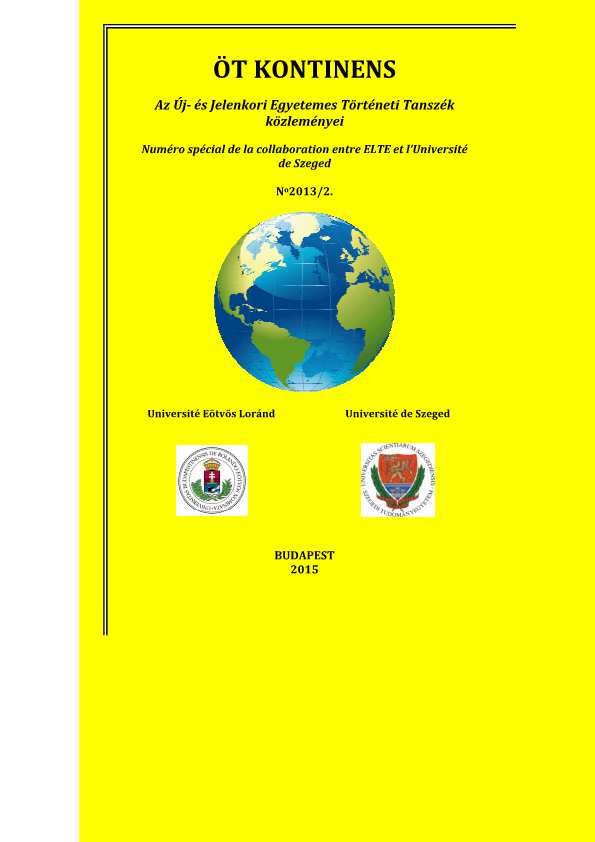La dimensión „vertical” para eludir el Tratado de Versalles: el papel de las expediciones meteorológicas marítimas de los alemanes por el Atlántico Sur (1924-1927) en el establecimieno de las líneas aéreas según el itinerario Alemania-América del Sur
The Vertical Dimension of the Evasion of the Treaty of Versailles: Marine Meteorological Expeditions of Germany in the South part of the Atlantic Ocean to establish an Intercontinental Air Route between Germany and South America
Author(s): Ferenc FischerSubject(s): Interwar Period (1920 - 1939)
Published by: Eötvös Loránd Tudományegyetem, Új-és Jelenkori Egyetemes Történeti Tanszék
Keywords: meteorological expeditions (1924-1927); „Transozeanprojekt”; „vertical dimension”; Luft Hansa; air mail service; Berlin; Rio de Janeiro; Buenos Aires; Treaty of Versailles
Summary/Abstract: From the middle of the 1920’s, a massive rivalry started to develop between Germany and France to establish the European-South American intercontinental air route. The „Transozeanprojekt” became one of the largest undertakings of the Weimar Republic. The most significant task was executed by the research vessel called Meteor that conducted systematic meteorological surveys between April of 1925 and June of 1927 to reveal the so called „Luftozean", the climate circumstances of the South Atlantic. This enabled the development of a safe foundation for the air mail service between Berlin, Rio de Janeiro and Buenos Aires. While the hang-glider (217 units) program examined the lower layers of the atmosphere, the pilot-balloons (814 units) that were used to gain meteorological data analyzed the higher layers of the atmosphere. The 14,000 km long air route, the „vertical dimension” proved to be the best „civilian” solution for the German aircraft industry to circumvent the military restrictions of the Treaty of Versailles. After the test flights and meteorological research conducted between 1924 and 1934, the Luft Hansa air mail flight began to operate – with a 5 day long flight – between Berlin and Buenos Aires from February of 1934. Despite being defeated in WWI, Germany surpassed its French rival.
Journal: ÖT KONTINENS
- Issue Year: 2013
- Issue No: 2
- Page Range: 169-194
- Page Count: 26
- Language: Spanish

